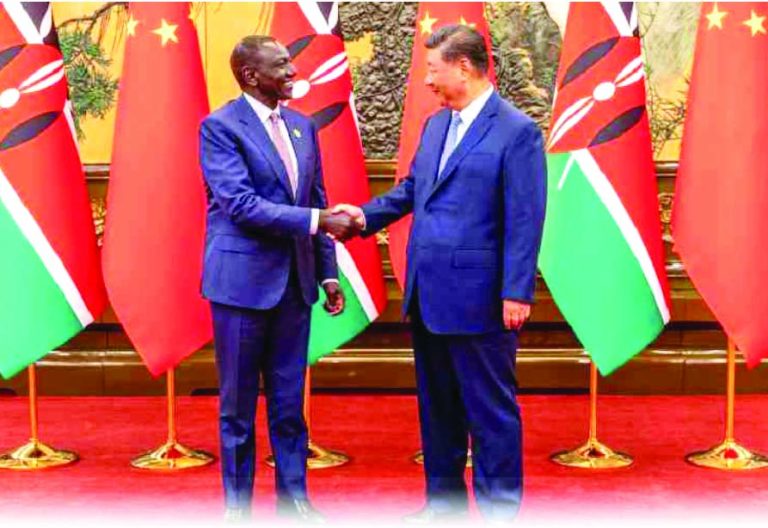US two-faced in faulting Kenya-China ties

US Senator James Risch, chairman of the Foreign Relations Committee, is on the warpath against Kenya. He contends it is time for the US to reassess its relations with Kenya and other countries that forge tight bonds with China. What is one to make of the senator’s continuous tirades against Kenya?
First, Kenya’s close ties with China date back to the Kibaki presidency over a decade ago. That was when these ties were forged. It’s nothing new. China has been very instrumental in financing and building world-class infrastructure in Kenya. This has radically improved Kenya’s global competitiveness. This is set to continue with the recently signed-up projects, including the Nakuru-Mau Summit expressway and the extension of the Standard Gauge Railway to Busia/Malaba, which follow this pattern. So, what has changed?
Second, China and Kenya announced major projects during President William Ruto’s state visit in May 2025. These projects are set to be rolled out in the next two months. A similar clutch of projects were announced during Ruto’s state visit to the US in June 2024. None of the projects that were announced then has started. Not one. Indeed, none has been given any timelines. Why would Kenya ditch China, an ally who has proved itself so dependable?
Risch declared that the US will pull the plug on Kenya’s designation as a non-Nato ally. This non-NATO ally business is a red herring. In reality, it has been an empty platitude for Kenya. For the one year Kenya has been so designated, not a single benefit has accrued to the country. Not a single cent in defence, counterterrorism, trade or investment.
What is even worse is that the US has been very reluctant to give full financial support it promised its only non-NATO ally in sub-Saharan Africa in its mission of fighting criminal gangs in Haiti. The US pushed Kenya to accept the Haiti brief on its behalf. And Kenya is supposed to be a non-NATO ally? Please!
But what takes the biscuit in this whole episode is the blatant hypocrisy of the US when it comes to its own relations with China.
China is the second largest holder of US sovereign debt, at $1.22 trillion. Indeed, it was the largest holder of US debt for 17 years until this year, when Japan overtook it marginally. US exported goods worth $143.5 billion to China, its third largest export market, in 2024. The US imported goods worth $438.9 billion from China in 2024.
Some 227,398 Chinese students currently attend US universities. There are 4.7 million Chinese nationals working in the US. Further, over 5,000 Chinese-owned businesses are operating there.
In the past decade, Chinese investors have bought out major US companies
In turn, America’s most iconic brands – Coca Cola, Nike, Apple, Walmart, Boeing, GM, Microsoft and Starbucks, among others – are in China scrambling for a share of the Chinese business pie. Worse, many major US companies rely heavily on manufacturing their goods or components in China for sale in the US market.
And now the clincher – this very month, the US and China are locked in secret talks in Geneva, Switzerland, at the highest levels of government, aimed at concluding a US-China trade agreement.
But no, Risch is concerned that Kenya is “becoming too close to China”! The level of hypocrisy is mind-boggling.
It cannot be news to Risch how closely intertwined the US and China are. The question, then, must be posed of the US: what is behind all this sabre-rattling?
Why is US trying to intimidate Kenya?
– gathukara@gmail.com












